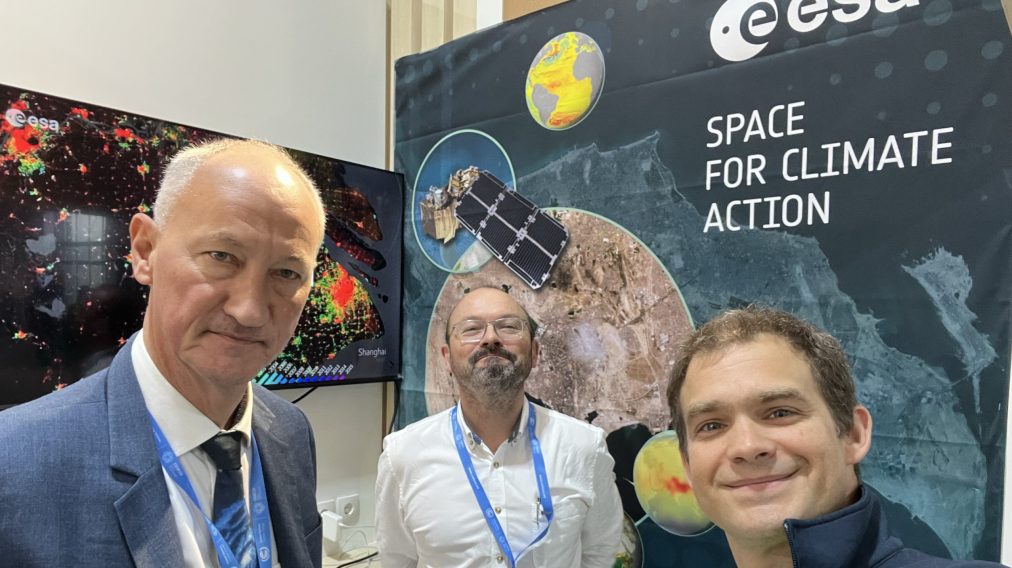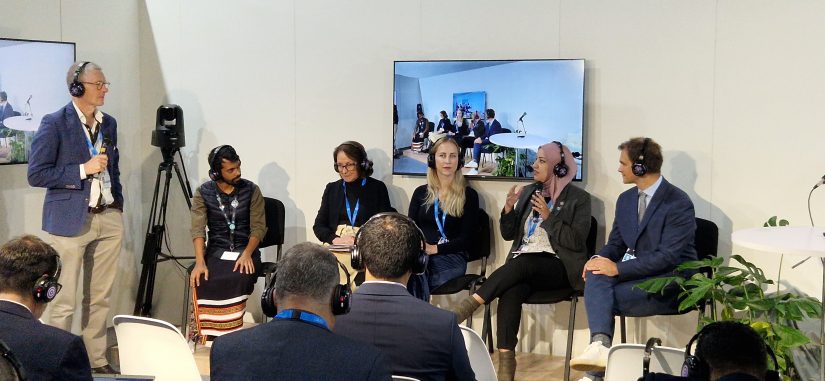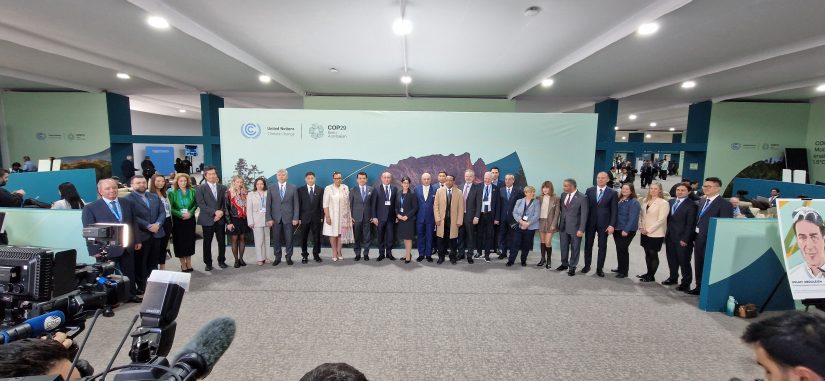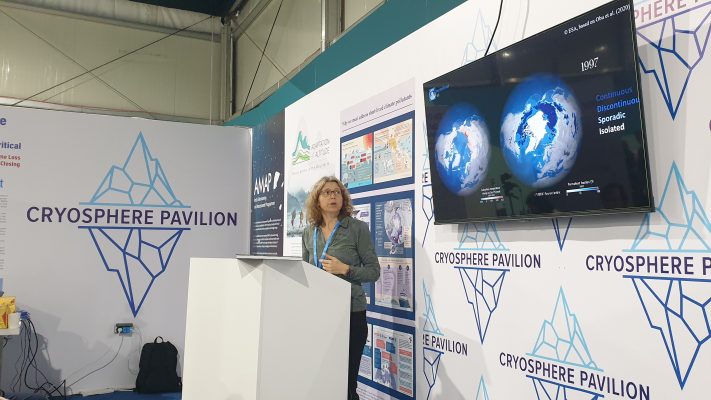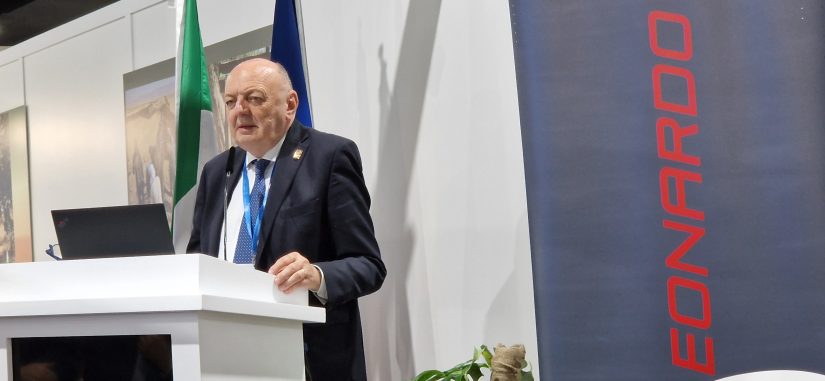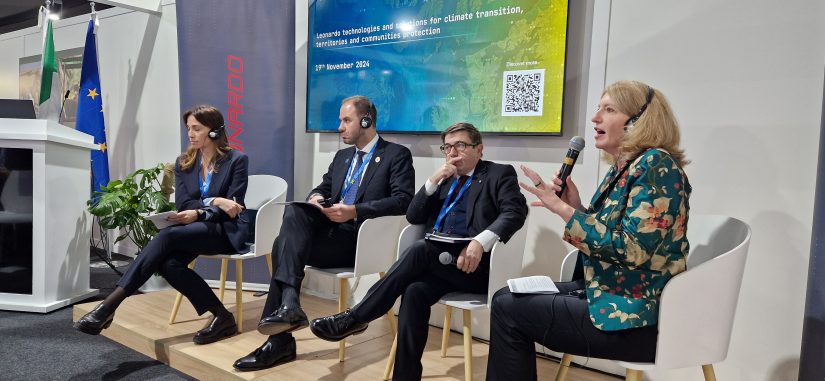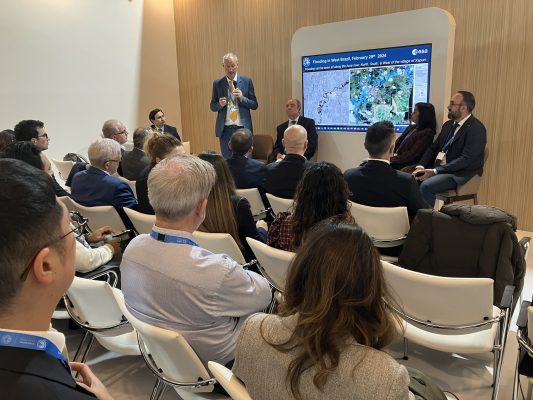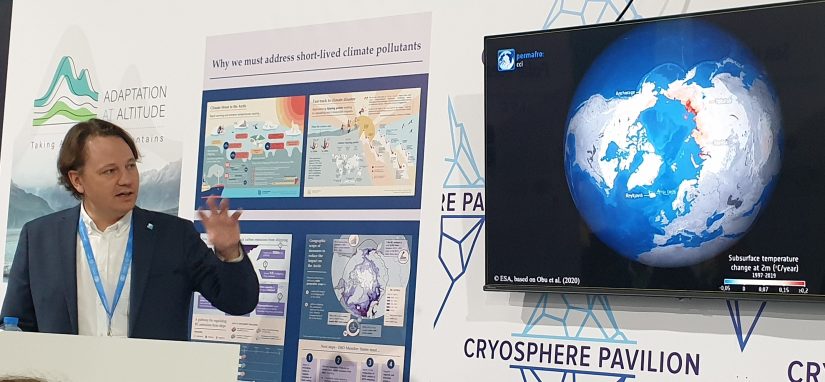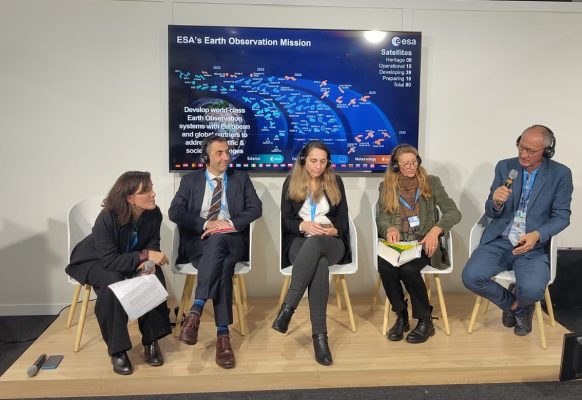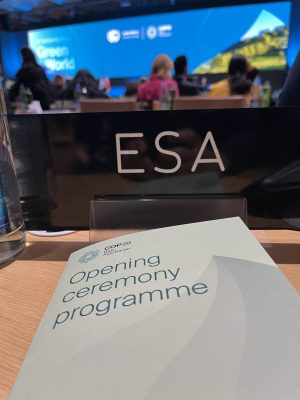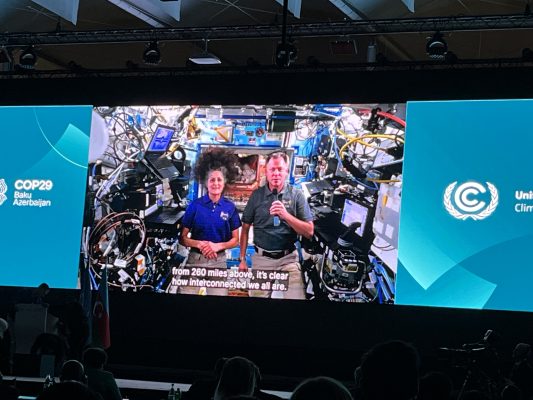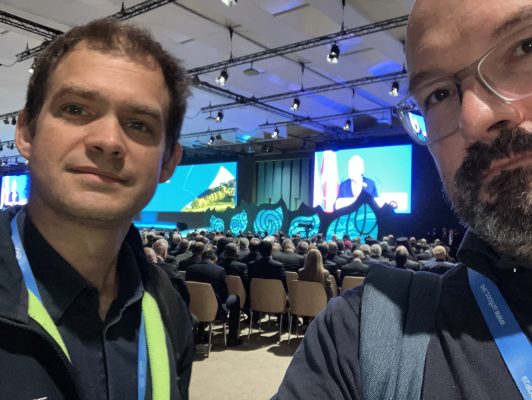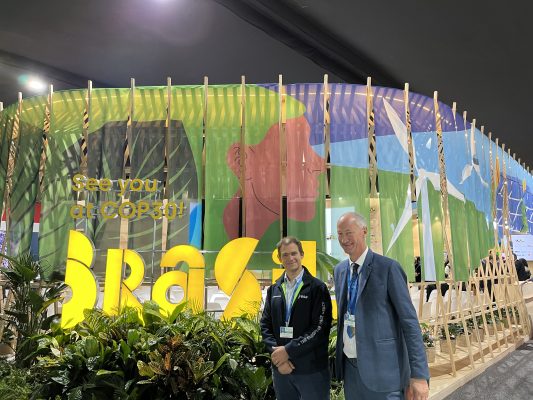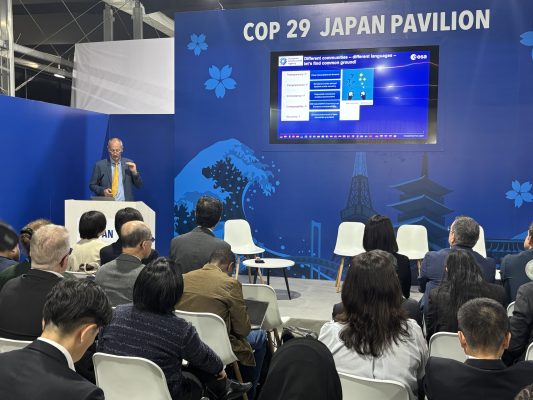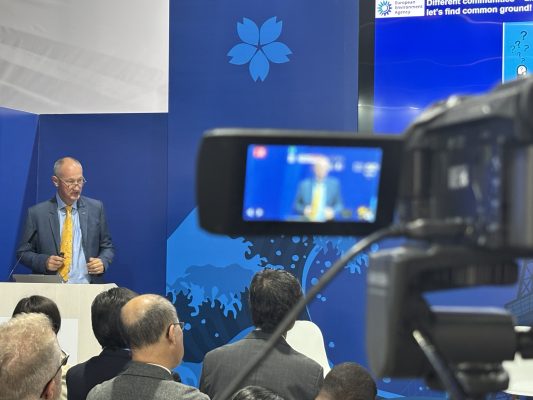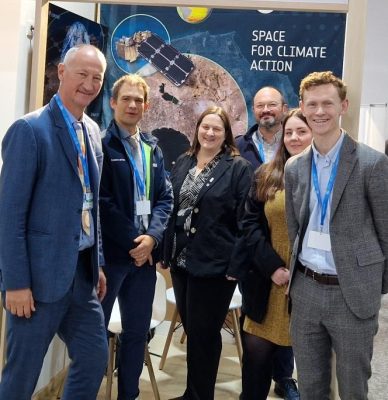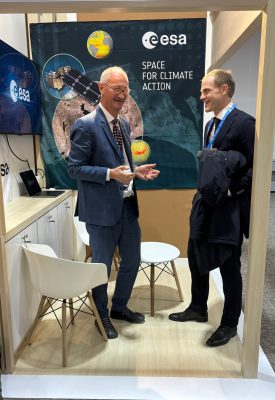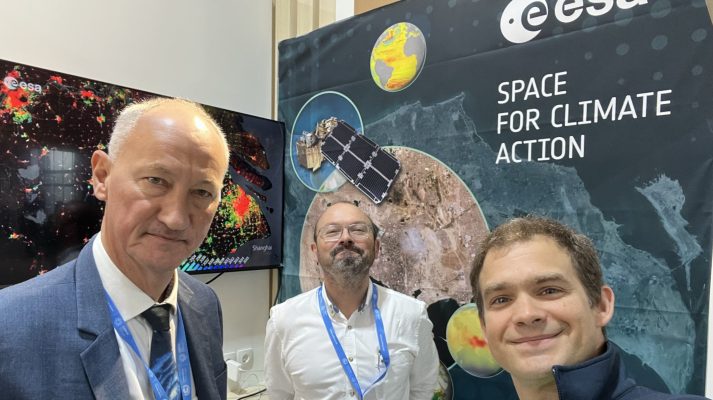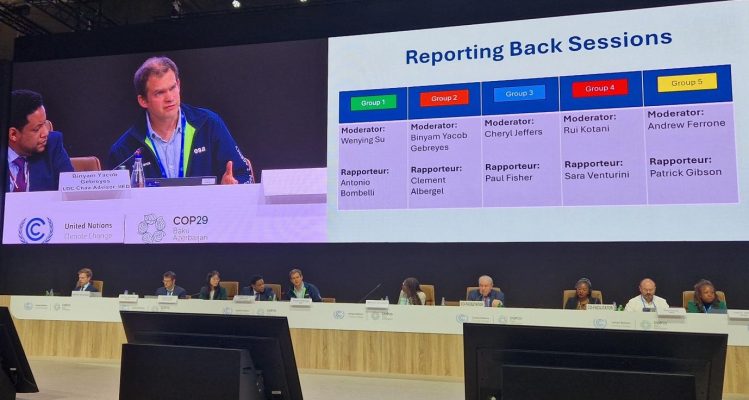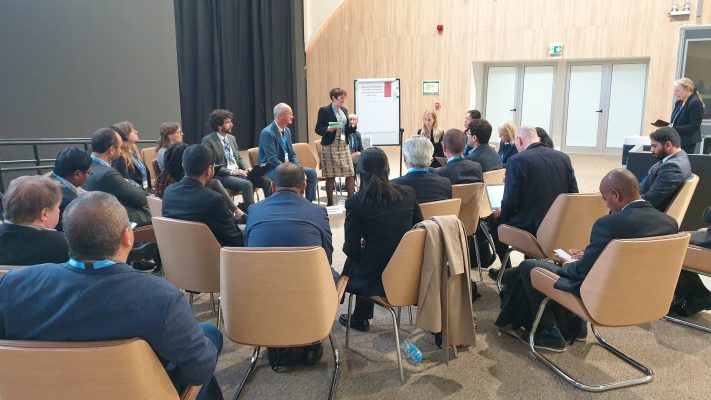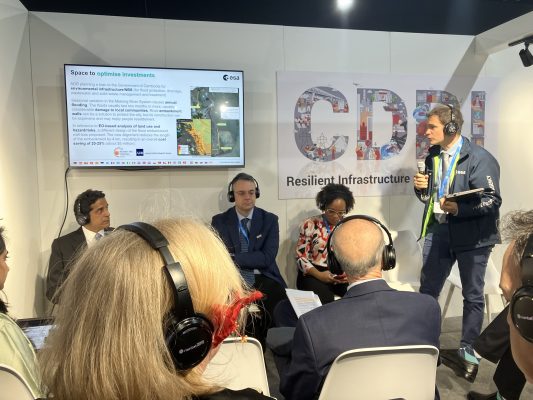The European Space Agency has contributed also this year’s UNFCCC COP29 summit in Baku, Azerbaijan, held from November 11 to 22, 2024. As global leaders, scientists, and advocates gathered to negotiate and advance climate action, ESA underscored the importance of Earth observation (EO) data in understanding and addressing climate challenges.
ESA’s delegation of Earth Observation, supported by experts participating remotely has actively contributed to the summit’s discussions and events. A highlight was the annual Protecting Our Planet (POP) event livestreamed by ESERO-UK. These initiatives reach global audiences, showcasing the role of space in inspiring and educating the next generation about climate action.
Throughout the summit, ESA leveraged its expertise and EO resources to support several initiatives:
- Earth Information Day
ESA provided critical insights during one of the summit’s opening events, which focused on the state of the global climate system. Delegates emphasized advancements in systematic observations, with ESA contributing to discussions on climate change mitigation, adaptation and loss and damage. - Infrastructure risk resilience
Clement Albergel represented ESA at the Coalition for Disaster Resilient Infrastructure (CDRI) Pavilion, presenting on the topic of Leveraging data and technology for infrastructure risk resilience. The discussion highlighted collaborative efforts with DG INTPA. - Global Carbon Budget 2024
At the press conference for the release of the Global Carbon Budget 2024 report, ESA-supported scientists from the Climate Change Initiative (CCI) presented the latest summary of global carbon emissions and sequestration trends, including findings highlighted in recently published studies. - Congo Basin and EUDR discussions
Frank Martin Seifert chaired a side event at the Congo Basin Pavilion, emphasizing systematic observations and Copernicus’ free and open data policy. The session explored the European Union Deforestation Regulation (EUDR) and its implications for forest monitoring and conservation, including options using satellite data and its role in the verification process. - Carbon markets
At the Japan Pavilion, ESA presented its latest work on carbon accounting, including outcomes from the recent ESA/EEA workshop on EO for Carbon Markets 2024 in which ESA together with EEA catalysed the discussion with a strong focus on EU policies such as LULUCF Regulation and Carbon Removals and Carbon Farming (CRCF) Regulation. Discussions in COP highlighted the potential of satellite data in enhancing voluntary carbon credit systems. - Tropical forest monitoring
ESA organized an event focusing on advances in monitoring tropical forests, with the participation of the tropical forest countries Brazil, Cameroon, and Mozambique sharing their experiences as a valuable input on best practices. - Understanding the climate system and its change
ESA participated in the panel discussion of the Earth Observations in support of Climate mitigation and adaptation event, organised by the World Meteorological Organisation (WMO). The event scope ranged from setting up the scene to the use of observations in the context of Nationally Determined Contributions (NDC), Global Stocktake (GST), and integrated environmental policies up to the panel discussion (including ESA, GEO, GCOS and NIOF) on the financing of the sustainable observations. The panel was a good opportunity to share examples of the role of satellite EOs in adaptation, and how they can provide information on observable adaptation measures and track their impact.
Fostering collaboration for Climate Action
Networking opportunities at COP29 proved invaluable. ESA’s stand attracted attention from national delegates, international organisations, and specifically the young generation from NGOs. Ongoing discussions with actual partners such as the World Meteorological Organization (WMO), Food and Agriculture Organisation (FAO), and the Intergovernmental Panel on Climate Change (IPCC) further strengthened ESA’s role in the global climate ecosystem.
Through its active participation, ESA demonstrated how EO data is integral to advancing climate science, informing and better linking policy, and inspiring collective action.
Find out additional details here.

